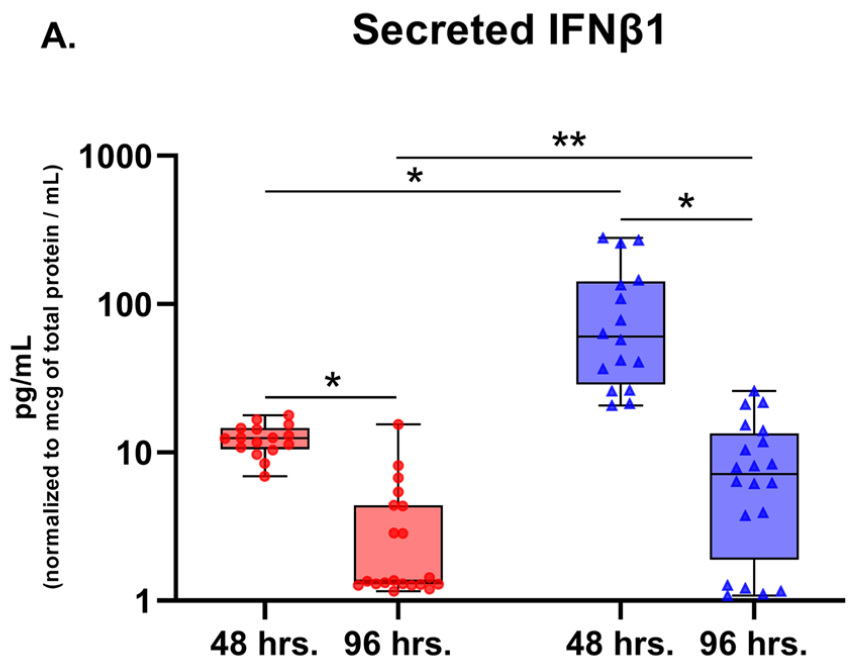Abstract
Common alphacoronaviruses and human rhinoviruses (HRV) induce type I and III interferon (IFN) responses important to limiting viral replication in the airway epithelium. In contrast, highly pathogenic betacoronaviruses including SARS-CoV-2 may evade or antagonize RNA-induced IFN I/III responses. In airway epithelial cells (AECs) from children and older adults we compared IFN I/III responses to SARS-CoV-2 and HRV-16, and assessed whether pre-infection with HRV-16, or pretreatment with recombinant IFN-β or IFN-λ, modified SARS-CoV-2 replication. Bronchial AECs from children (ages 6–18 years) and older adults (ages 60–75 years) were differentiated ex vivo to generate organotypic cultures. In a biosafety level 3 (BSL-3) facility, cultures were infected with SARS-CoV-2 or HRV-16, and RNA and protein was harvested from cell lysates 96 h. following infection and supernatant was collected 48 and 96 h. following infection. In additional experiments cultures were pre-infected with HRV-16, or pre-treated with recombinant IFN-β1 or IFN-λ2 before SARS-CoV-2 infection. In a subset of experiments a range of infectious concentrations of HRV-16, SARS-CoV-2 WA-01, SARS-CoV-2 Delta variant, and SARS-CoV-2 Omicron variant were studied. Despite significant between-donor heterogeneity SARS-CoV-2 replicated 100 times more efficiently than HRV-16. IFNB1, INFL2, and CXCL10 gene expression and protein production following HRV-16 infection was significantly greater than following SARS-CoV-2. IFN gene expression and protein production were inversely correlated with SARS-CoV-2 replication. Treatment of cultures with recombinant IFNβ1 or IFNλ2, or pre-infection of cultures with HRV-16, markedly reduced SARS-CoV-2 replication. In addition to marked between-donor heterogeneity in IFN responses and viral replication, SARS-CoV-2 (WA-01, Delta, and Omicron variants) elicits a less robust IFN response in primary AEC cultures than does rhinovirus, and heterologous rhinovirus infection, or treatment with recombinant IFN-β1 or IFN-λ2, reduces SARS-CoV-2 replication, although to a lesser degree for the Delta and Omicron variants.
** corresponding authors
